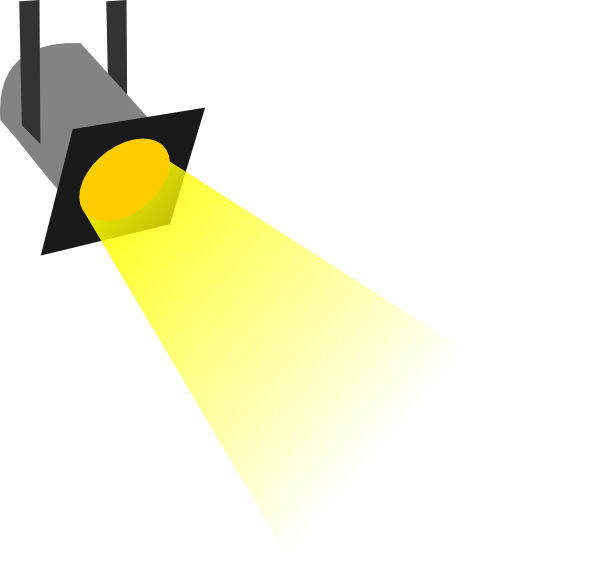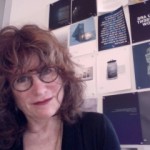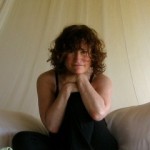Posted - 01/20/2012 Grant Partner Spotlight: Catalogue of Extinct Experience An Interview With Christina L. Desser


“As I traveled on, the air was literally filled with pigeons. The light of noon-day was obscured as by an eclipse, and the continued buzz of wings had a tendency to lull my senses.
Before sunset I reached Louisville, Kentucky. The pigeons passed in undiminished number, and continued to do so for three days in succession. The people were all in arms. The banks of the Ohio were crowded with men and boys, incessantly shooting at the pilgrims, which flew lower as they passed over the river. Multitudes were thus destroyed. For a week or more, the population fed on no flesh other that of pigeons, and talked of nothing but pigeons.â€
This is how John Audubon described a sky black with carrier pigeons—an experience we will never have—carrier pigeons are long extinct. And gone with the pigeons is a particular way of knowing the world and experiencing the world. The disappearance of experiences like this gave rise to her art installation, A Catalogue of Extinct Experience. Chris told us how the idea for the installation arose:
“When I first understood that experiences were becoming extinct I was floored—not by extinction—this was not a new idea, but by the concomitant loss of sense experience—this diminution felt tragic to me. The idea of an extinct experience gave way to the feeling of the loss. How would I be affected by a less colorful, less fragrant, less delicious, less sensual world? I thought about the sense experiences that have shaped me: staring in wonder at the night sky. Drinking directly from a Sierra stream. Witnessing, with a shiver of fear, a stalking tiger. Knowing the fragrance of sandalwood only through an old novelty fan, ever less redolent, that my grandmother brought back from India? I decided to “catalogue†such experiences.â€
“A Catalogue of Extinct Experience is not about reifying extinction†Chris says, “nor is it about reifying experience. It is about increasing awareness that sense experiences—the fragrance of Peter’s Mountain Mallow flower, the color indigo, the enveloping entirety of a rainforest landscape, are disappearing– and the disappearance of these experiences has consequences for the human consciousness.â€
For Chris, these experiences have been routes to wondrous places and different states of mind. It is a state that “feels like love,†she says, “an opening of the heart, an awareness of the connection and interconnection that characterizes life itself. Like making love, these are physical experiences that dissipate boundaries; they connect and transcend.†For Chris, “it is a shame, criminal really, to extinguish avenues that give rise to this awareness that imparts such meaning to our lives, an awareness that can motivate change.†She believes that this idea, these feelings, will find resonance with others.
 Chris hopes that the installation will give rise to a new awareness
about one’s own life, and recognize, perhaps for the first time, the
experiences that have shaped it. This perspective can inform an
entirely different way of thinking about the world. “You never know
what will flip the switch in any individual consciousness to a more
integrated awareness of life,†says Chris. Such a switch is necessary
if we and other species are to survive. She hopes that, this project
might do that, at least for some. A section of the installation offers
people the time and space to contemplate, record and share with others
important experiences in their own lives that are silently drifting into
extinction
Chris hopes that the installation will give rise to a new awareness
about one’s own life, and recognize, perhaps for the first time, the
experiences that have shaped it. This perspective can inform an
entirely different way of thinking about the world. “You never know
what will flip the switch in any individual consciousness to a more
integrated awareness of life,†says Chris. Such a switch is necessary
if we and other species are to survive. She hopes that, this project
might do that, at least for some. A section of the installation offers
people the time and space to contemplate, record and share with others
important experiences in their own lives that are silently drifting into
extinction
Invoking the Pause felt that this project was a worthy investment, consistent with our mission. We fund creative collaborations that will increase awareness about the very real consequences of climate change. We have continued to support A Catalogue of Extinct Experience as it evolves. Chris is developing the Catalogue in two phases. “The first phase grant has allowed me to research the real costs of the installation,†she explained, “Phase Two will be the installation itself.â€
Chris is hoping that A Catalogue of Extinct Experience will be installed in San Francisco at Fort Mason Center. Fort Mason is consistent with the vision of the project: it has ample space for the installation; its location by San Francisco Bay with views of the Golden Gate Bridge and surrounding landscape provides an immediate connection to the natural world; and there is plenty of foot traffic from tourists and locals alike.
Elements of the installation will engage all the senses: a perfume comprised of endangered plants; a chamber to climb up into and see what the night sky looks like in different parts of the world from the Kalahari to New York City; images of extinct and endangered landscapes preserved in jars and along with the now silent sounds of the place; videos and recordings of the last of a people speaking the last of their languages; beautiful glyphs, once the means of communication of a culture, now meaningless to us. The subtle differences in the tastes of honey from different flowers and plants from around the world, the diversity of flavor ever diminished as the flora and pollinators edge towards extinction.
Chris extrapolates, “In dealing with climate change and other catastrophic social, environmental and issues, we’ve bombarded people with science, facts, figures. The other side doesn’t tell the truth, spends less money, and they are winning hearts and minds. Perhaps it is time to try something different. Art can bypass the rational mind altogether. It appeals at a heart level, an emotional level—my most profound awakening experiences have emanated from those places. To actually see what the night sky looks like is so staggering—it penetrates the mind and body palpably; it is not intellectual at all. It isn’t that having an awe-inspiring experience flips the switch and then everything is fine; it’s that you start to live with a different awareness, in a different world.
Our efforts to deal with climate change and the other enormous problems we face today must emanate from a completely connected, integrative consciousness, and must be directed towards the preservation and enhancement of a completely connected world. Richard Rorty said, “that a talent for speaking differently, rather than for arguing well, is the chief instrument of cultural change.†The need to speak differently has never been so urgent; speaking differently is what artists do best.
“My intention, my hope, is that whatever the means—meditation or unmediated experience in natural world, an awareness of the interconnected and interdependent nature of existence may arise. And with the realization that we are not separate, may we become ever more compassionate. When you know you are not separate then clear-cutting a forest is like hacking off your own arm. Dwelling in the consciousness of connection it becomes evident that to cause harm to another thing or being is to harm oneself. It is true that such awareness can also arise sitting in a cinder block cell, but preserving the opportunity for its arising in a sensually delightful way—through sense experience is far more appealing to me. That is a central idea of A Catalogue of Extinct Experience, to call attention to the fact of lost and endangered experiences in the first place—I don’t think most people have ever considered the idea — and create opportunities for this awareness, with all its possible personal implications and consequence, to arise.â€
- All
- #ZeroBy2050
- 10Power
- 350 Seattle
- 36.5
- ANHE
- ARC-KE:i
- Al Gore
- Alicia Escott
- American Resilience Project
- Anjali Nayar
- Anthony Myint
- As You Sow
- At the Water's Edge
- Bard Center for Environmental Policy
- Beka Economopoulos
- Biomimicry Collaborative
- Bioneers
- Black Permaculture Network
- Blossoming Possibilities
- Blue Heart Labs
- Bodhi Garrett
- Britta Riley
- Bureau of Linguistical Reality
- C2C(Change 2 Climate)
- CELI
- COP21
- COP22
- California Foodways
- California Institute for Rural Studies
- Carbon Shock
- Casey Beck
- Catalogue of Extinct Experience
- Cathedral of St. John the Divine
- Center for Investigative Reporting
- Change the Bulb
- Chris Desser
- CityLab7
- Clean Energy Leadership Institute
- Climate Change
- Climate Science Alliance
- Climate Solutions Group
- CoClimate
- Convening 2010
- Coronavirus
- Council of Pronghorn
- Daily Acts
- Dancing Earth
- Dancing Without Borders
- Dr. Renee Lertzman
- Dream Rider Productions
- DreamRider Productions
- Duke University
- E2
- Earth Guardians
- Earthseed Consulting
- Eban Goodstein
- Eve Mosher
- Faith Kearns
- GAIA
- Gary Nabhan
- General
- Global Climate Action Summit
- Grant Partner Gathering
- Grant Partner Spotlight
- Grant Partners
- Grant Proposal Application
- Grants
- Happening
- Heidi Quante
- HighWaterLine
- Human Impacts Institute
- Impact Experience
- Impact Hours
- Invoking the Pause
- Joshua Fouts
- KALW
- KQED
- Kelly McVicker
- Kiss The Ground
- Libby Modern
- Lien Tran
- Lindley Mease
- Lisa Micheli
- Lisa Morehouse
- Magalie Bonneau
- Maggie Kaplan
- Mark Hertsgaard
- Mark Schapiro
- McDonalds
- Monica Wilson
- Morgan Curtis
- Natural History Museum
- Newsweek
- Nicole Heller
- Nicole Lederer
- Nina Simons
- Nina Wise
- Optimist Daily
- Pandora Thomas
- Paris COP21
- Pepperwood Preserve
- Peter Cunningham
- Planet Protector Academy
- Planet Protectors
- Post Pause
- Power Shift Network
- Presidio Graduate School
- Psych Alive
- Rainforest Connection
- Rebecca Patton
- Reinhard Hohlwein
- Rulan Tangen
- SPM3
- Sandra Kwak
- Sarah Cameron Sunde
- Science House Foundation
- Seeding Possibilities
- Seeds of Resistance
- Starbucks
- Stephen Antupit
- Sun Valley Forum
- SustainUS
- TIMBY
- Taco Diplomacy
- Tara DePorte
- Tensorflow
- Terry Tempest Williams
- The Arctic Cycle
- The Natural History Museum
- The Optimist Daily
- The Organic Life
- The Perennial
- The Redford Center
- Topher White
- Transition US
- Trathen Heckman
- Tribal Changes App
- University of Miami
- Videos
- Village Green(er)
- Wildlife Conservation Network
- Windowfarms
- Winters Past
- Works on Water
- World Business Academy
- XSproject
- Xi Martinez
- Zero Foodprint
- invoking the Pause

